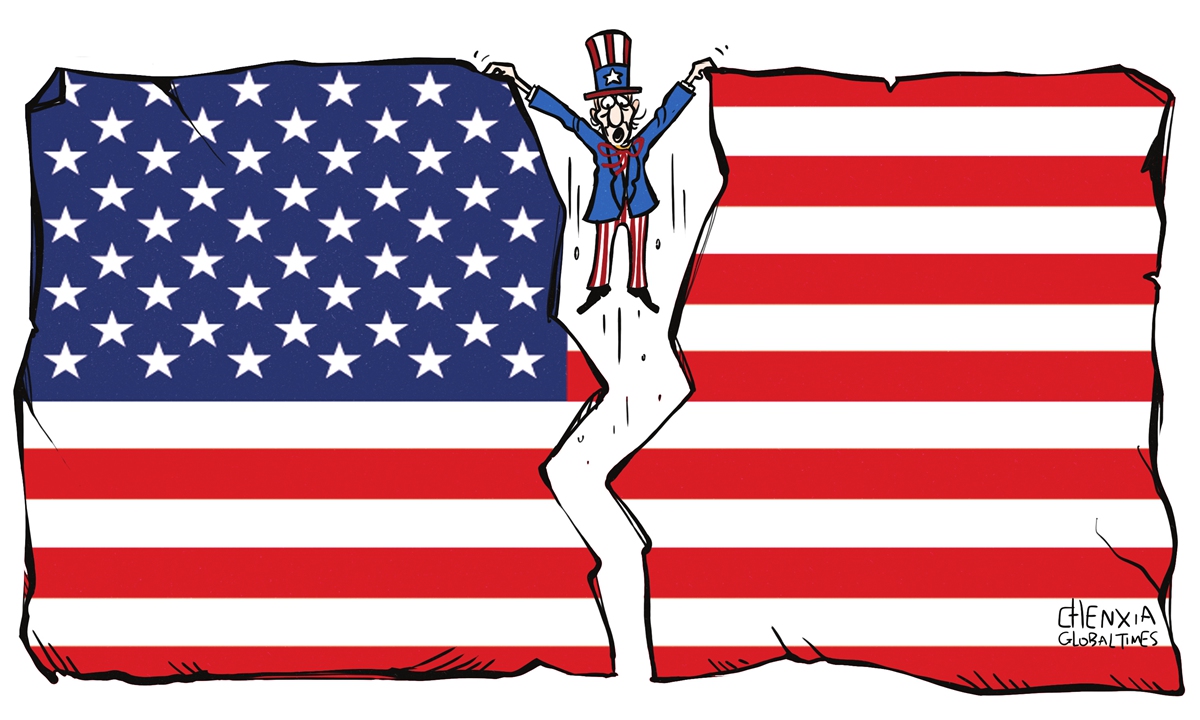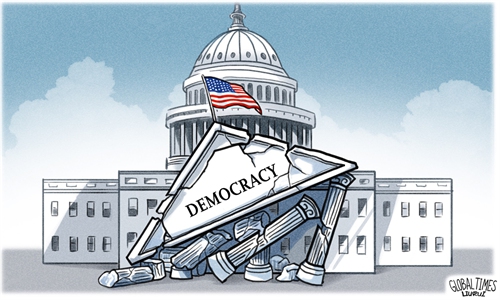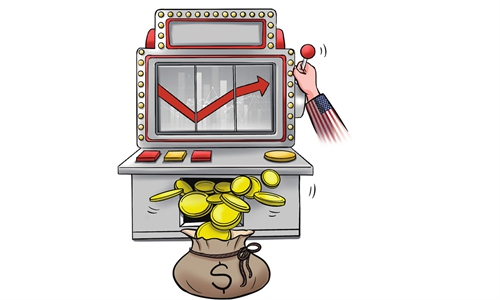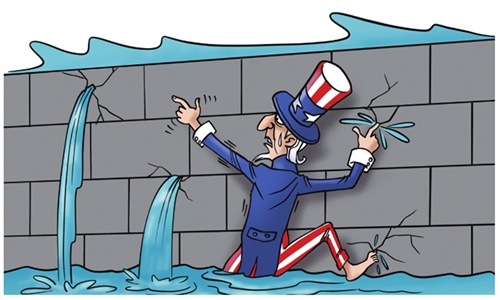Has US institution reached a watershed moment?

Illusion: Chen Xia/GT
Donald Trump recently said that he will make an important announcement next Tuesday. Most people believe that he will announce his candidacy for the 2024 US elections.Trump has chosen to send this signal before the US midterm elections, apparently to garner more support for a Republican victory. It also shows that he still has considerable appeal. At least, his long honed political sensitivity tells him that his "charisma" remains undiminished.
Although recent US polls show a downward trend in Trump's support within his party, Trump's popularity could be rekindled with a possible Democratic loss in this midterm elections.
As outsiders, the Chinese people don't particularly care which party will win in the midterms, but Trump jumping on the stage would clearly increase the drama.
The only example in US electoral history of a man who ran again after losing was Democrat Grover Cleveland. He lost his re-election bid in 1888, but ran again to win in 1892.
The difference is that Trump is unwilling to concede defeat and runs again because he still has a strong influence.
Although his political life may become the victim of the political polarization, he will not give up the opportunity.
These days, competition between the two parties has entered a white-hot stage. Both parties see midterm elections as a "major battle" that will determine the fate of the country.
President Joe Biden has warned voters that American democracy is in peril, while Trump warned voters that more Democratic policies would soon turn the US into Cuba or Venezuela, with Republicans determined to "make sure America never becomes a socialist country."
Elections in the US are no longer simply a choice between the policies of two parties.
While voters still value specific policy directions such as abortion and gun control, elites in both parties do their best to guide voters to see elections as a "battle of lines."
Has the nature and institutions of the American nation really reached a watershed moment?
The extravagant expectations of the importance of elections in both parties reflect both the deep divisions in American society and the fundamentalism of the American political psyche. These two factors interact with each other.
The American political system is not a passive participant in this cycle; it is also a division maker. The problems in US politics today stem from the basic design of the US political institutions and are exacerbated by increasingly hostile polarization, writes American political scientist Francis Fukuyama in an article published in the September/October 2014 issue of Foreign Affairs.
This divide is profoundly affecting American political and social life, like two rival religions engaged in a fierce struggle. Each side sees the other as "not my people" and has a strong sense of disgust and distrust of the other, even to the point of believing that what the other side is doing is against morality and law and will bring destruction to America. American attributes were shredded.
American elections have thus become a clash of mutual denigration and condemnation, with the result that whoever wins will only exacerbate the divisions and make it harder to heal them.
The only consensus is on policy toward China. The divide has made both parties more aggressive on China policy, and both parties need to set a hostile country to show that they are pointing voters in the right direction and inspiring them to move toward to "compete" with it. As a result, the election has taken on a momentum of "I will be tougher than you."
In this regard, it seems that making predictions about the direction of US' China policy after the election has become meaningless. One thing is for sure, the split will intensify. The winning party after the election does not have the ability or the will to bridge that divide, because it is more beneficial to pull in more votes by emphasizing, or keeping, the divide, or even exacerbating it.
The author is a senior editor with People's Daily, and currently a senior fellow with the Chongyang Institute for Financial Studies at Renmin University of China. dinggang@globaltimes.com.cn. Follow him on Twitter @dinggangchina




